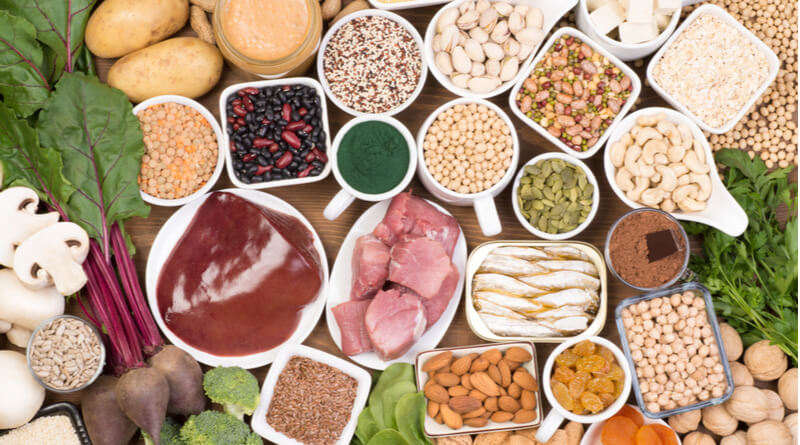Iron is a trace mineral, meaning it is essential for your body to run properly and your body does not produce it on its own. You have to obtain trace minerals from your diet. A failure to eat the proper foods that contain these minerals will lead to a mineral deficiency and subsequent negative health benefits.
The best thing to do to avoid a deficiency is naturally to make sure that you are eating enough food that is high in trace elements. Making sure you are consuming enough iron not only prevents you from developing negative health benefits, but it also boosts your heart health.
How Does Iron Help Your Heart?
Iron improves your heart health in several ways:
Boosts Hemoglobin Production
One of iron’s major duties is to produce hemoglobin, the substance needed to produce red blood cells. It also plays a significant role in the transportation of oxygen to various cells in the body. The heart cannot function properly if it is not producing blood cells and if those cells are not successfully transporting oxygen from the lungs to other parts of the body.
Reduces Anemia
Being involved in red blood cell production, iron is also responsible for alleviating anemia. Anemia is one of the most common nutritional deficiencies on the planet. The condition is caused by your body not producing enough hemoglobin. It can cause fatigue, raped heartbeat, shortness of breath, dizziness, insomnia, pale skin, and headaches.
Iron Rich Foods
The best way to avoid some of these symptoms and make sure you’re getting enough iron to take care of your heart; it is best to eat iron rich foods:
- Raisin bran
- Instant oatmeal
- Beans
- Tofu
- Lentils
- Spinach
- Beef
- Lamb
- Molasses
- Whole wheat bread
- Eggs
- Shrimp
- Clam
- Animal Liver








